Mebroot Trojan (Virus Removal Instructions)
Mebroot Trojan Removal Guide
What is Mebroot Trojan?
Mebroot Trojan – a treacherous computer infection with many dangerous capabilities

Mebroot Trojan is a perilous computer infection that was first spotted in 2007. Its main destructive payload is infecting the Master Boot Record code and wreaking havoc on the infected system. This pest installs a rootkit in the early stages of the system boot process, which hides its presence on your system and launches it even before your operating system starts. This malware opens the back door to your PC allowing the threat actor behind it to take complete control over your device. If you have a suspicion that your device is infected, please scan it with reliable anti-malware software immediately.
| name | Mebroot Trojan |
|---|---|
| Type | Trojan, backdoor, keylogger |
| Risks | Infection with additional malware, monetary losses, identity theft, complete system failure |
| Distribution | Malicious websites, drive-by downloads |
| Elimination | Perform the removal with anti-malware software in Safe Mode with Networking |
| System health | Since Trojans wreak havoc on system files, use the FortectIntego system diagnostics tool to get your device back on its feet |
Trojans are extremely hazardous as they may carry a lot of dangerous capabilities. Mebroot Trojan isn't an exception as it could record your keystrokes gathering various personal information (user names, passwords, banking info, etc.), download additional malware, steal personal files, and so on.
Manual removal of such a cyber threat is practically impossible as it doesn't have any registry keys, executable files, or driver modules. You can remove it only with the help of trustworthy anti-malware software, such as Malwarebytes, SpyHunter 5Combo Cleaner, or similar. And it would be best if you did it in Safe Mode with Networking (instructions provided below).
Mebroot Trojan causes a lot of damage to the system files and settings, leading to various system irregularities, such as BSoDs, severe lag, or complete system failure. Resolve all these system issues by performing a system tune-up with time-proven FortectIntego system optimizer.
Getting rid of Mebroot Trojan. Follow these steps
Manual removal using Safe Mode
Important! →
Manual removal guide might be too complicated for regular computer users. It requires advanced IT knowledge to be performed correctly (if vital system files are removed or damaged, it might result in full Windows compromise), and it also might take hours to complete. Therefore, we highly advise using the automatic method provided above instead.
Step 1. Access Safe Mode with Networking
Manual malware removal should be best performed in the Safe Mode environment.
Windows 7 / Vista / XP
- Click Start > Shutdown > Restart > OK.
- When your computer becomes active, start pressing F8 button (if that does not work, try F2, F12, Del, etc. – it all depends on your motherboard model) multiple times until you see the Advanced Boot Options window.
- Select Safe Mode with Networking from the list.
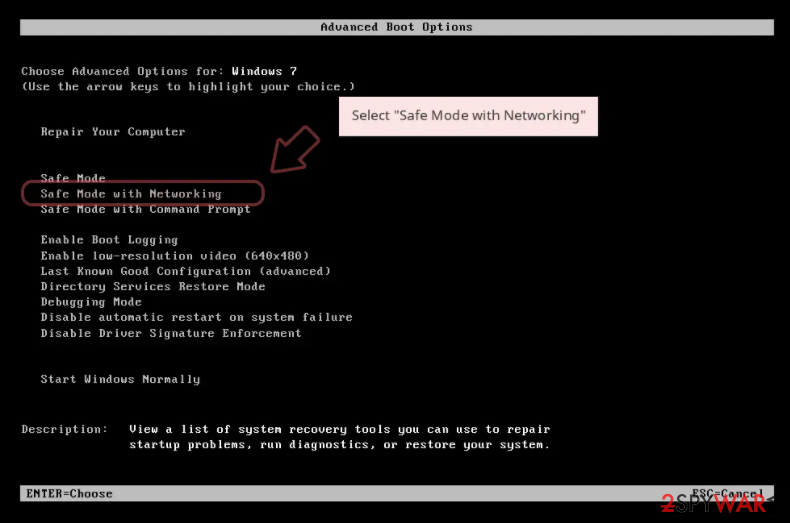
Windows 10 / Windows 8
- Right-click on Start button and select Settings.
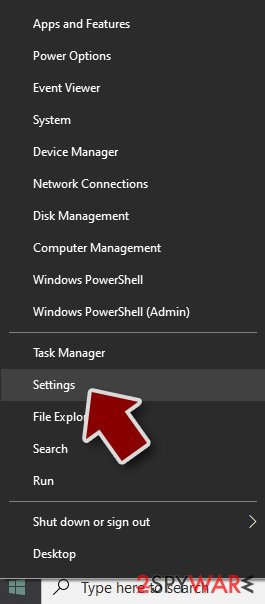
- Scroll down to pick Update & Security.
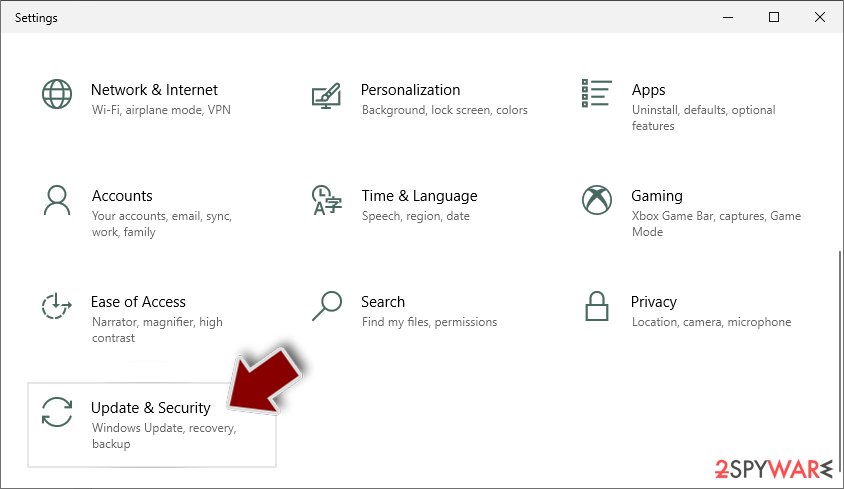
- On the left side of the window, pick Recovery.
- Now scroll down to find Advanced Startup section.
- Click Restart now.
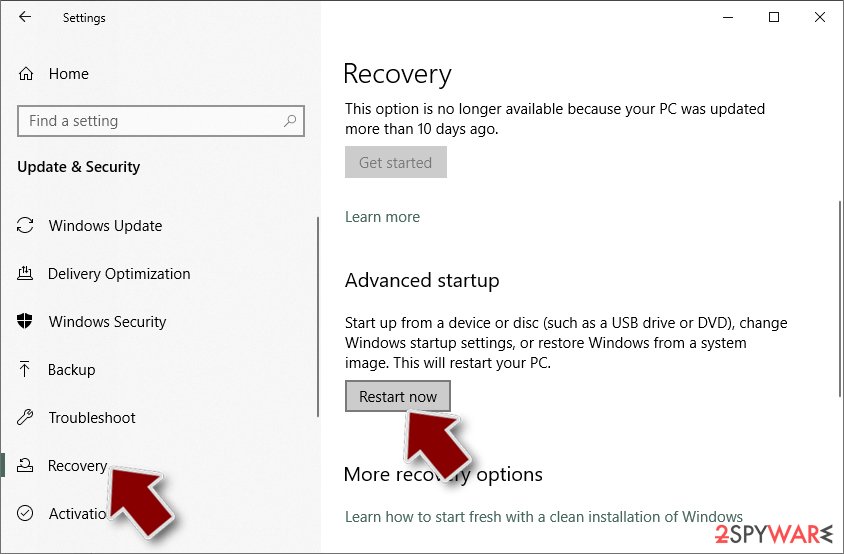
- Select Troubleshoot.
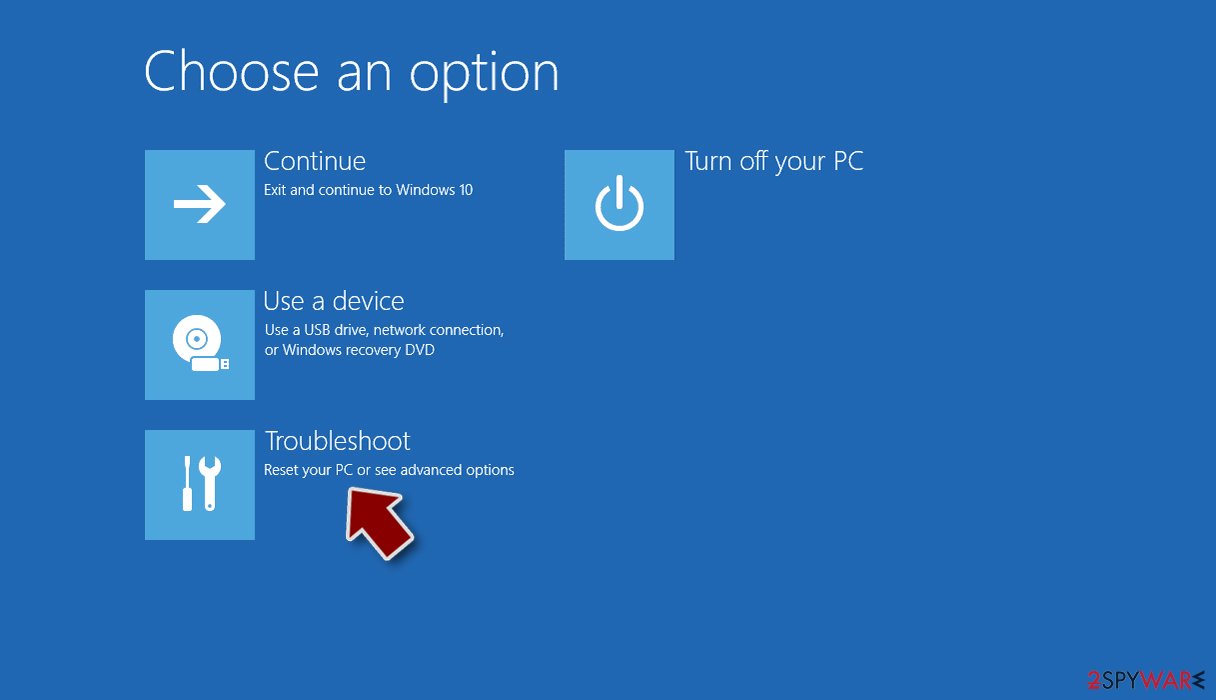
- Go to Advanced options.
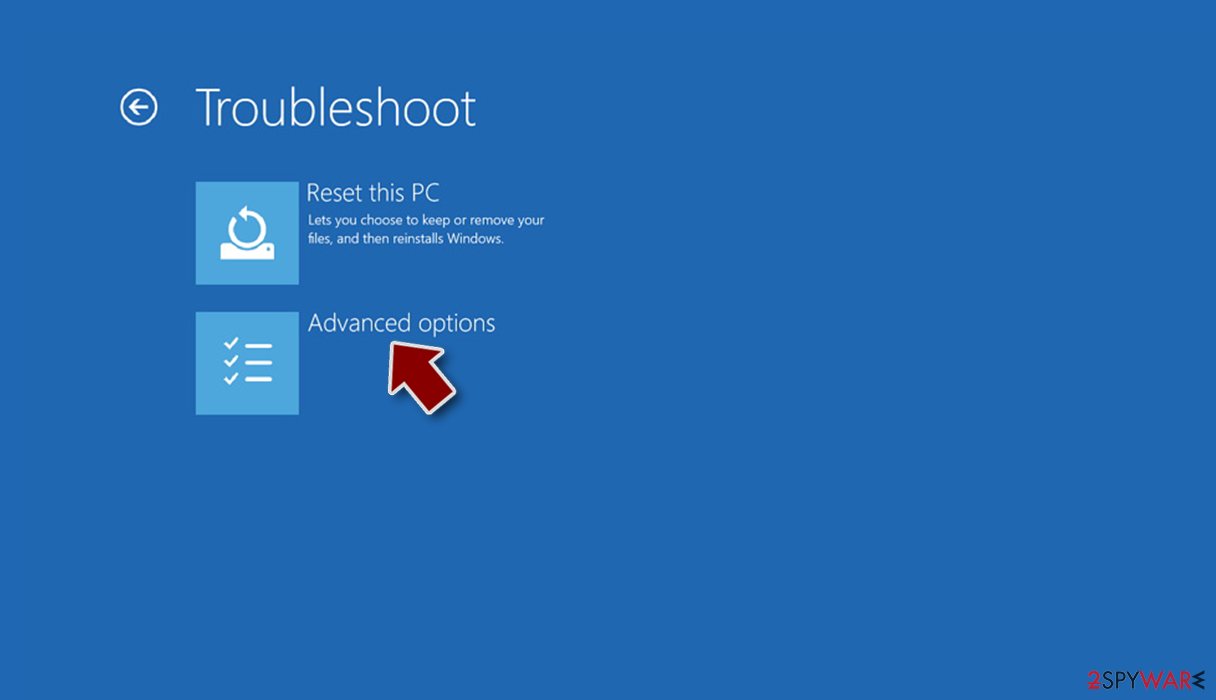
- Select Startup Settings.
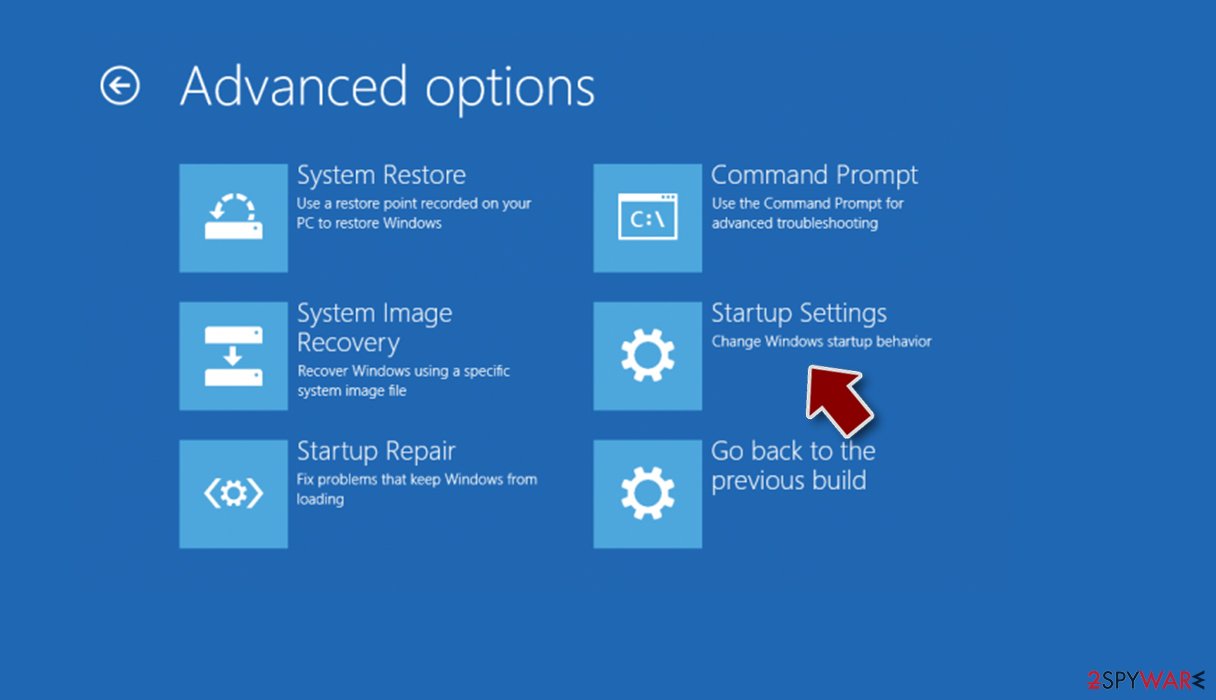
- Press Restart.
- Now press 5 or click 5) Enable Safe Mode with Networking.
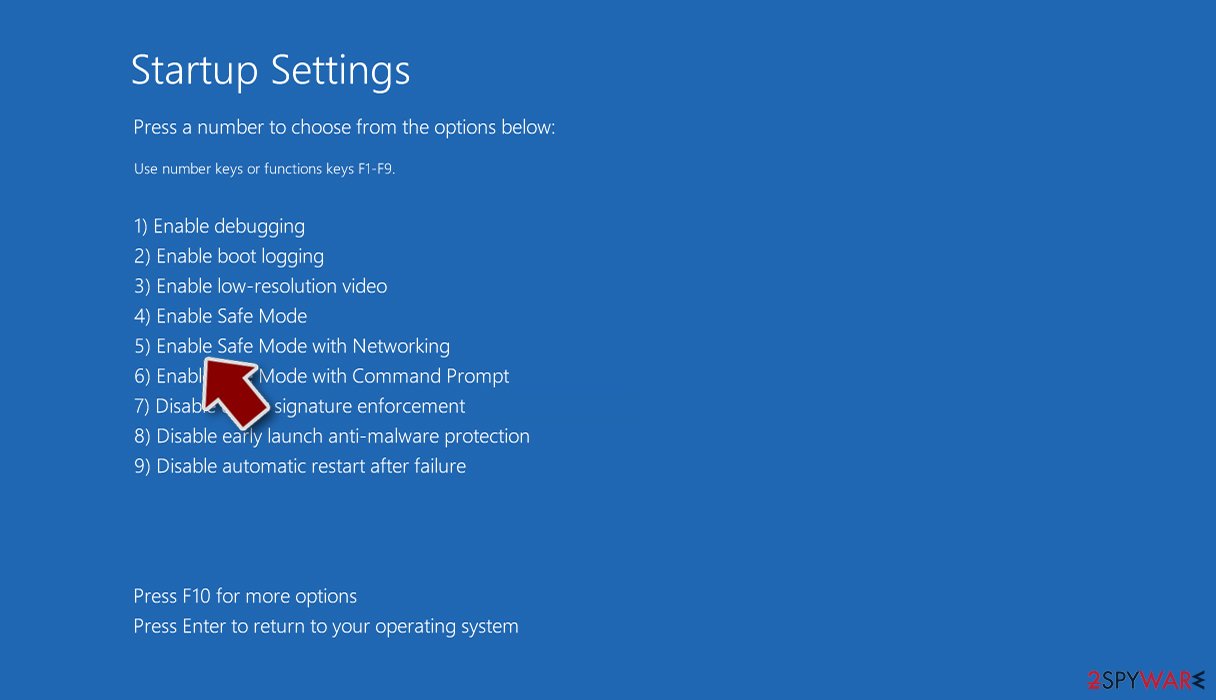
Step 2. Shut down suspicious processes
Windows Task Manager is a useful tool that shows all the processes running in the background. If malware is running a process, you need to shut it down:
- Press Ctrl + Shift + Esc on your keyboard to open Windows Task Manager.
- Click on More details.
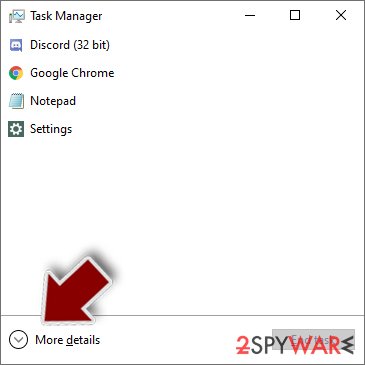
- Scroll down to Background processes section, and look for anything suspicious.
- Right-click and select Open file location.
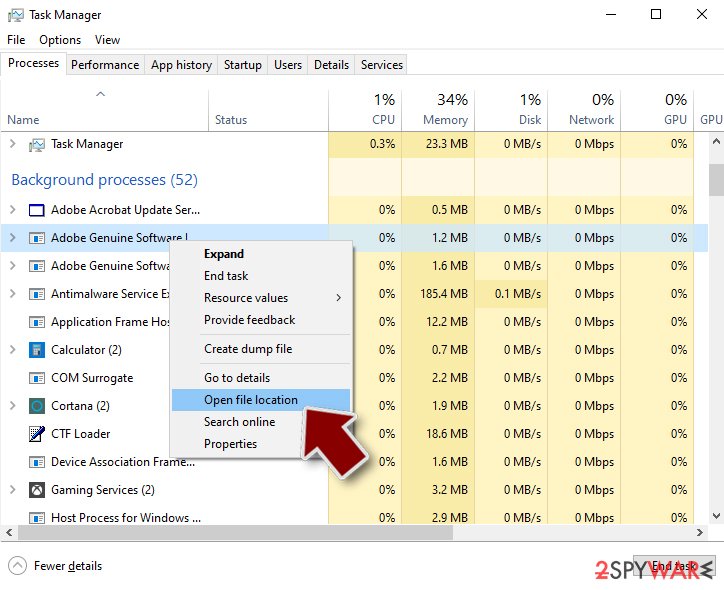
- Go back to the process, right-click and pick End Task.
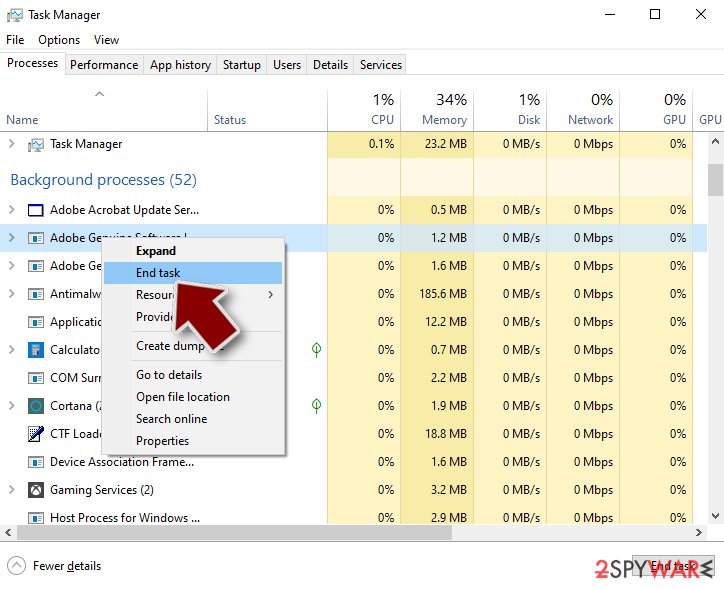
- Delete the contents of the malicious folder.
Step 3. Check program Startup
- Press Ctrl + Shift + Esc on your keyboard to open Windows Task Manager.
- Go to Startup tab.
- Right-click on the suspicious program and pick Disable.
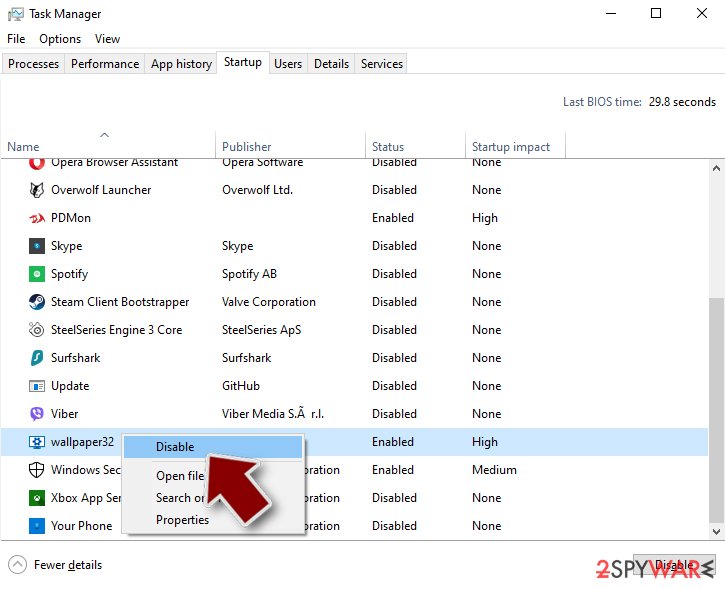
Step 4. Delete virus files
Malware-related files can be found in various places within your computer. Here are instructions that could help you find them:
- Type in Disk Cleanup in Windows search and press Enter.
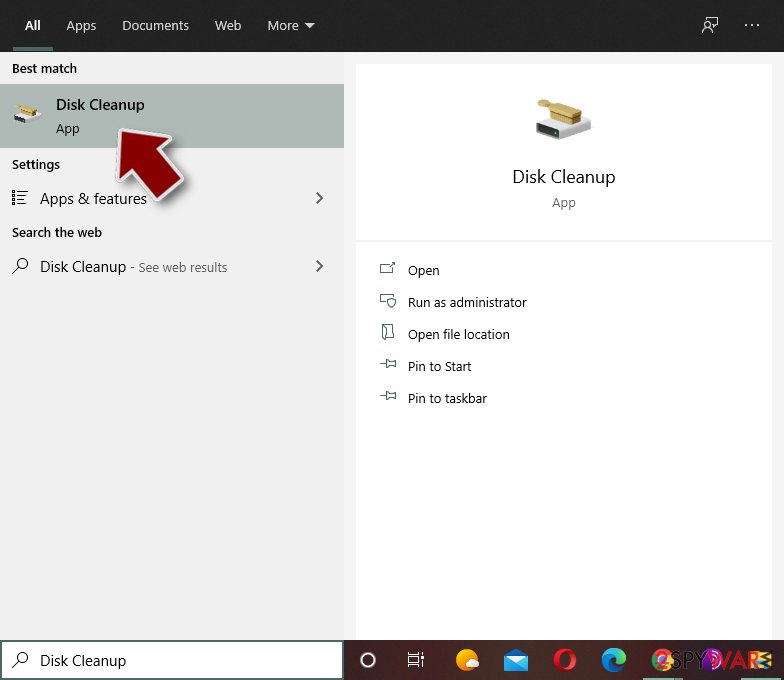
- Select the drive you want to clean (C: is your main drive by default and is likely to be the one that has malicious files in).
- Scroll through the Files to delete list and select the following:
Temporary Internet Files
Downloads
Recycle Bin
Temporary files - Pick Clean up system files.
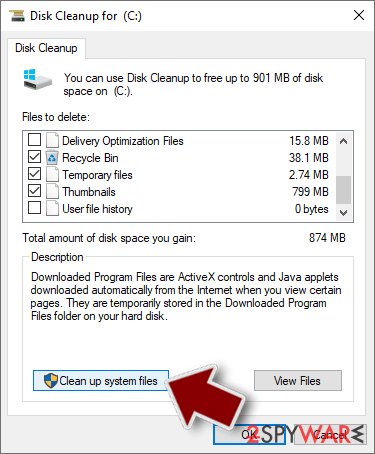
- You can also look for other malicious files hidden in the following folders (type these entries in Windows Search and press Enter):
%AppData%
%LocalAppData%
%ProgramData%
%WinDir%
After you are finished, reboot the PC in normal mode.
Finally, you should always think about the protection of crypto-ransomwares. In order to protect your computer from Mebroot Trojan and other ransomwares, use a reputable anti-spyware, such as FortectIntego, SpyHunter 5Combo Cleaner or Malwarebytes
How to prevent from getting trojans
Do not let government spy on you
The government has many issues in regards to tracking users' data and spying on citizens, so you should take this into consideration and learn more about shady information gathering practices. Avoid any unwanted government tracking or spying by going totally anonymous on the internet.
You can choose a different location when you go online and access any material you want without particular content restrictions. You can easily enjoy internet connection without any risks of being hacked by using Private Internet Access VPN.
Control the information that can be accessed by government any other unwanted party and surf online without being spied on. Even if you are not involved in illegal activities or trust your selection of services, platforms, be suspicious for your own security and take precautionary measures by using the VPN service.
Backup files for the later use, in case of the malware attack
Computer users can suffer from data losses due to cyber infections or their own faulty doings. Ransomware can encrypt and hold files hostage, while unforeseen power cuts might cause a loss of important documents. If you have proper up-to-date backups, you can easily recover after such an incident and get back to work. It is also equally important to update backups on a regular basis so that the newest information remains intact – you can set this process to be performed automatically.
When you have the previous version of every important document or project you can avoid frustration and breakdowns. It comes in handy when malware strikes out of nowhere. Use Data Recovery Pro for the data restoration process.
